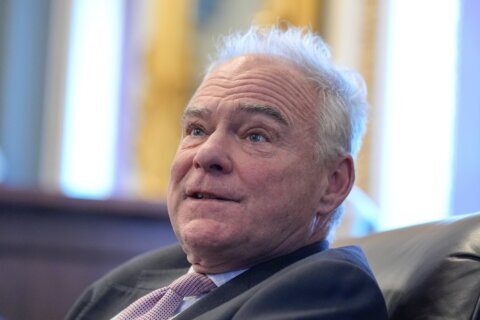
(CNN) — Executives from seven major drug companies will be grilled about the high cost of their medications at a Senate panel on Tuesday morning.
The hearing is the latest volley in Washington’s battle against soaring drug prices, which has become a top priority for the Trump administration, as well as many Democratic and some Republican lawmakers.
Executives from companies including Pfizer, Johnson & Johnson and AbbVie, will appear before the Senate Finance Committee and likely face tough questions from the panel’s new chairman, Republican Sen. Chuck Grassley of Iowa, who promises to be much tougher on drug makers than his recently retired predecessor GOP Sen. Orrin Hatch of Utah. Grassley last month chastised the companies for declining his invitation to appear at a January hearing.
Grassley and the committee’s top Democrat, Sen. Ron Wyden of Oregon, last week began an investigation into insulin prices, sending letters to leading manufacturers Eli Lilly, Novo Nordisk and Sanofi about their recent price increases of up to 500% or more.
The Iowa senator also has sponsored several bills aimed at the industry, including teaming up with Democratic Sen. Amy Klobuchar of Minnesota recently on a bill that would allow the importation of prescription drugs from approved pharmacies in Canada.
Committee Democrats, meanwhile, plan to make a moral case on Tuesday for why the industry’s current business model is unacceptable and prices must come down, an aide said.
Witnesses called to testify at Tuesday’s hearing include Richard A. Gonzalez, chairman and CEO of AbbVie; Pascal Soriot, executive director and CEO of AstraZeneca; Giovanni Caforio, chairman and CEO of Bristol-Myers Squibb; Jennifer Taubert, chairman and executive vice president of Johnson & Johnson; Kenneth C. Frazier, chairman and CEO of Merck; Albert Bourla, CEO of Pfizer; and Olivier Brandicourt, CEO of Sanofi.
Drug companies continue to raise their prices even though the Trump administration has floated a slew of proposals aimed at taming their upward march, and Trump has publicly criticized the pharma industry.
More than 650 products have seen price hikes this year, through early February, according to Rx Savings Solutions, which sells software to employers and insurers to reduce drug costs. The industry justifies the moves as essential for investing in research and development. Drug makers often point out they see very little of the increases because of the big rebates they distribute to others in the supply chain, including insurers and pharmacy benefit managers, who in turn blame pharma for setting high list prices.
Among the more notable ideas from the Trump administration include setting the reimbursement level for certain drugs administered in doctors’ offices and hospital outpatient centers based on their cost in other countries, which typically pay far less. The so-called International Pricing Index model has already faced blow back from many quarters, including some Republican lawmakers.
Another significant proposal would bar drug makers from providing rebates to pharmacy benefit managers and insurers in Medicare Part D and Medicaid managed plans. Drug companies support this concept, though others in the pharmaceutical supply chain do not.
Lowering drug prices is also a priority for congressional Democrats, who are newly empowered after winning a majority in the House after the midterm elections, where health care was a deciding issue. Democratic lawmakers have recently put forward several legislative proposals to bring down soaring drug prices, building momentum on an issue that has shown to be key heading into the Democratic presidential primary next year. They typically favor allowing the federal government to negotiate drug prices, particularly through Medicare.
Sen. Bernie Sanders, who is running for president in 2020 as a Democrat, and Rep. Elijah Cummings, a Maryland Democrat who chairs the powerful House Oversight Committee, unveiled a legislative package last month that calls for allowing pharmacies, individuals and wholesalers to import drugs from Canada. Sanders and California Democrat Rep. Ro Khanna have also introduced the Prescription Drug Price Relief Act, which would require the federal government to pay the same as the median price for a drug in Canada, the United Kingdom, France, Germany and Japan.
Other ideas that have either been introduced as legislation or confirmed by Senate offices as being considered include making a public option for generic drugs, letting Medicare negotiate drug prices, penalizing price-gouging by manufacturers and abolishing “pay-for-delay,” which is when a branded drug maker pays off a generic one to keep a competing product from coming to market.








